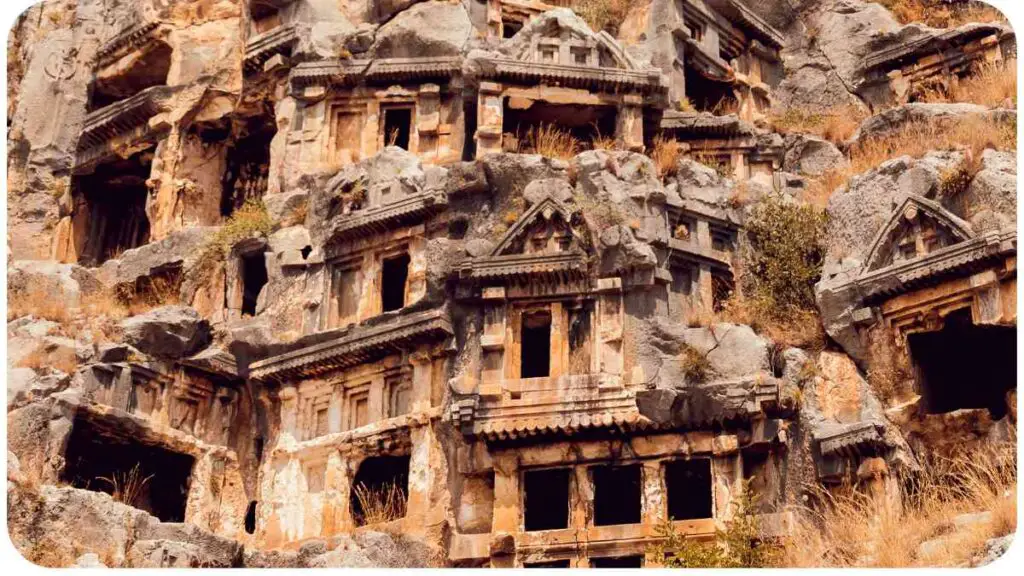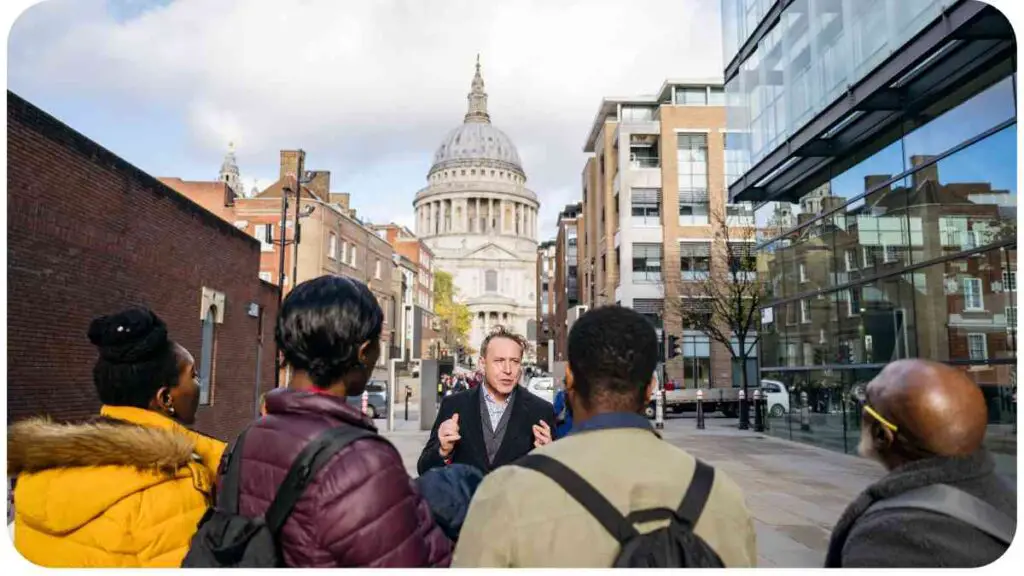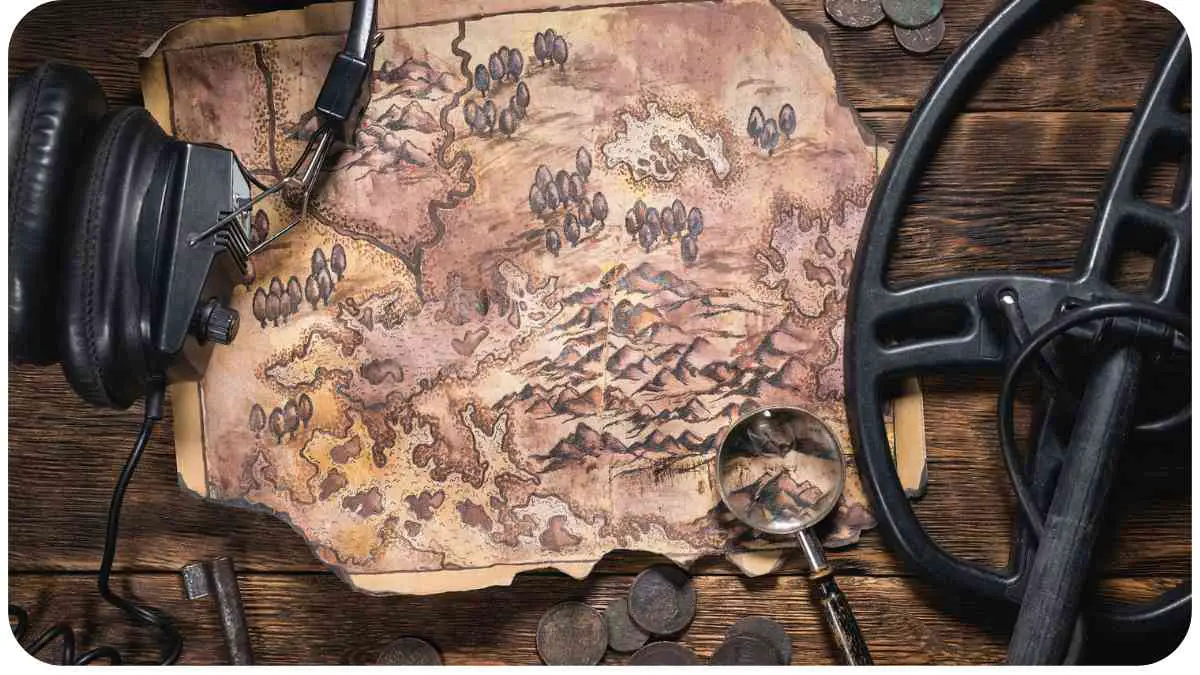Welcome to this quick and easy guide on researching history for better treasure hunting! Whether you are a seasoned historian or a curious enthusiast, this article will provide valuable insights, tips, and techniques to help you uncover hidden gems from the past.
By exploring different historical periods, understanding reliable sources, harnessing technology, and engaging with experts, you’ll enhance your treasure hunting experience and increase your chances of finding remarkable treasures.
In this guide, we will cover various research methods, useful tools, and real-life examples that highlight the importance of historical research in treasure hunting. So put on your explorer’s hat, grab your notebook, and let’s embark on a journey through time!
| Takeaways |
| Research is crucial for successful treasure hunting |
| Utilize a combination of primary and secondary sources |
| Access online databases for historical research |
| Engage with local historians for unique insights |
| Analyze maps and geographic information |
| Decode symbols and signs for hidden meanings |
| Explore oral histories and conduct interviews |
| Make use of technology and digital tools |
| Develop effective strategies to record and organize information |
| Apply critical thinking and interpretation skills |
| Learn from real-life examples and success stories |
| Stay curious and let the past guide your treasure hunting journey |
2. The Importance of Research
Before we dive into the nitty-gritty of historical research, let’s first understand why it is crucial for successful treasure hunting. Research lays the foundation for a fruitful quest by equipping you with valuable insights about historical events, significant locations, and the people who lived in various time periods.
By gathering well-researched information, you can unearth hidden clues that may point you in the right direction as you seek out precious relics and lost treasures.
Uncover the excitement of incredible antique discoveries with tales that breathe life into forgotten relics. Each find holds a piece of history, igniting the passion for treasure hunting.
3. Understanding Different Historical Periods

To effectively research history, you need to have a basic understanding of different historical periods. Each era has its unique characteristics, cultural influences, and key events that shaped the world. By familiarizing yourself with different historical periods, you’ll be able to contextualize your findings, identify potential treasure locations, and make sense of historical artifacts you may encounter along the way.
It’s crucial to remember that historical periods often overlap and influence one another. Here’s a brief overview of some prominent periods:
- Ancient Civilizations
- Middle Ages
- Renaissance and Enlightenment
- Industrial Revolution
- World Wars
- Modern Era
Now, let’s dig deeper and explore various research methods and tools that will help you become a history-savvy treasure hunter.
4. Locating Historical Sites
Table: Top Historical Sites Worldwide
| Historical Site | Location | Key Features |
| The Pyramids of Giza | Egypt | Ancient tombs and structures |
| Machu Picchu | Peru | Incan ruins overlooking the Sacred Valley |
| Colosseum | Rome, Italy | Iconic amphitheater with a rich history |
| Angkor Wat | Siem Reap, Cambodia | Largest religious monument in the world |
| Stonehenge | England | Mysterious prehistoric stone circle |
One of the first steps to successful treasure hunting is identifying and visiting historical sites. These sites are often treasure troves, rich with artifacts and clues from the past. By exploring these locations, you’ll gain firsthand knowledge and immerse yourself in the historical context.
To begin, make a list of historical sites that spark your interest. Whether you prefer ancient civilizations, medieval castles, or World War II battlegrounds, there are countless options worldwide. Use the table above as inspiration and conduct further research on these remarkable historical sites.
Once you’ve selected a few sites to explore, it’s time to delve deeper into the available resources that facilitate your research.
Embark on a journey to unveil the mystery of lost gold mines. This guide delves into the legends, providing insights into the quest for hidden treasures beneath the earth’s surface.
5. Primary and Secondary Sources
When conducting historical research, it’s important to distinguish between primary and secondary sources. Primary sources are original materials that provide direct evidence about a topic or event, such as diaries, letters, photographs, or artifacts from a specific time period. These sources offer firsthand accounts and perspectives, making them invaluable in uncovering historical truths.
Secondary sources, on the other hand, are interpretations or analyses of primary sources. They include scholarly articles, books, documentaries, and historical narratives that provide context and analysis based on primary sources. While secondary sources can offer valuable insights, it’s crucial to cross-reference and validate the information they provide.
By utilizing a combination of primary and secondary sources, you will have a more comprehensive understanding of historical events, artifacts, and the people behind them.
6. Accessing Online Databases
Table: Popular Online Databases for Historical Research
| Database Name | Features |
| JSTOR | Extensive collection of scholarly articles |
| ProQuest | Wide range of academic resources and dissertations |
| Ancestry.com | Genealogical records and historical documents |
| Archive.org | Digital library offering access to various texts |
| Europeana | European cultural heritage collection |
With the availability of technology, accessing online databases has become an excellent resource for historical research. These platforms provide access to a wide range of historical documents, academic articles, and cultural resources, all at your fingertips.
Consider utilizing the online databases mentioned in the table above to enhance your treasure hunting research. JSTOR and ProQuest are renowned for their extensive collections of scholarly articles, offering in-depth analysis on various historical topics.
Ancestry.com is a valuable tool for tracing genealogical records and discovering insights about your ancestors. Archive.org allows you to explore a vast digital library, while Europeana focuses on European cultural heritage.
Explore the outdoors with geocaching, the perfect adventure for families. This exciting activity combines navigation, exploration, and discovery, turning every outing into a treasure-filled experience for all ages.
7. Visiting Libraries and Archives
Table: Notable Libraries and Archives
| Library/Archive | Location | Specialized Collections |
| Library of Congress | Washington, D.C. | Extensive collection of historical records |
| British Library | London, England | Manuscripts, rare books, and maps |
| National Archives | Washington, D.C. | Official U.S. government records |
| Vatican Library | Vatican City | Ancient manuscripts and artifacts |
| The Met Archives | New York City | Art and cultural history resources |
Libraries and archives house a wealth of historical information waiting to be discovered. These institutions contain a vast array of books, manuscripts, maps, and documents that can provide valuable insights into your treasure hunting research.
When visiting libraries and archives, make sure to check their specialized collections to find resources that align with your interests. The table above highlights some notable libraries and archives renowned for their historical holdings.
Take advantage of the resources available in these institutions, consult with knowledgeable librarians and archivists, and be prepared to spend hours getting lost in the pages of history.
8. Engaging with Local Historians

Local historians are often the unsung heroes of historical research. They possess a wealth of knowledge about the specific history of an area and can guide you towards hidden treasures and lesser-known historical sites.
Reach out to local historical societies, museums, or expert historians in the areas you’re interested in exploring. Arrange meetings or interviews to gain insights and personal anecdotes that may not be readily available in books or online resources.
By engaging with local historians, you’ll tap into their expertise and experience firsthand the passion they have for preserving and sharing local history.
Dive into the depths with underwater archaeologists as they illuminate the secrets hidden in shipwrecks. Discover the techniques and technologies behind uncovering maritime history, preserving the tales of sunken treasures.
9. Analyzing Maps and Geographic Information
Table: Mapping and Geographic Tools for Historical Research
| Mapping Tool | Features |
| Google Earth | Satellite imagery and 3D maps |
| ArcGIS | Geospatial analysis and mapping software |
| National Geographic | Historical maps and interactive resources |
| OldMapsOnline | Collection of historical maps from various sources |
| Historic Place Names | Database of historical place names and their origins |
Maps and geographic information can provide valuable insights when researching history for treasure hunting. Historical maps, satellite imagery, and geospatial tools offer a visual representation of how landscapes have changed over time, helping you identify potential sites of interest or uncover hidden treasures.
Utilize the mapping tools mentioned in the table above to explore historical maps, compare different time periods, and overlay other geographic data. Whether you’re using Google Earth to examine aerial views, utilizing ArcGIS for detailed analysis, or accessing National Geographic’s collection of historical maps, incorporating geographic information will enhance your understanding of historical contexts.
10. Decoding Symbols and Signs
In historical research, decoding symbols and signs can unveil hidden messages and meanings. Symbols may appear in the form of ancient scripts, hieroglyphs, or even architectural features. By understanding the significance behind these symbols, you can gain insights into the historical context and potentially discover clues that lead to hidden treasures.
It’s crucial to familiarize yourself with common symbols and signs associated with different historical periods. Consult reference books, online resources, and experts in the field to decipher these enigmatic codes. Remember, the key to unlocking the secrets of symbols lies in careful examination and diligent research.
Plunge into the world of treasure hunting with scuba diving equipment. Learn the essential tips and tricks for utilizing underwater gear, turning your dives into exciting and fruitful adventures uncovering hidden treasures.
11. Exploring Oral Histories and Interviews
Table: Guidelines for Conducting Oral History Interviews
| Guideline | Description |
| Prepare and Research | Familiarize yourself with the interviewee and topic |
| Formulate Questions | Plan open-ended questions to encourage storytelling |
| Create a Comfortable Environment | Put the interviewee at ease and foster trust |
| Active Listening | Pay attention, prompt for details, and show interest |
| Document and Transcribe | Record the interview and transcribe it accurately |
Oral histories and interviews with individuals who have lived through historical events offer unique perspectives and personal stories that may not be documented elsewhere. These accounts provide invaluable insights into specific time periods, cultural practices, and the experiences of people who lived through them.
To conduct meaningful oral history interviews, follow the guidelines in the table above. Prepare in advance by researching the interviewee and the topic to ensure informed questions. Create a comfortable environment that encourages storytelling and active listening. Lastly, document and transcribe the interview accurately to preserve and share these valuable accounts for future generations.
12. Utilizing Technology and Digital Tools
Table: Recommended Apps for Historical Research
| App | Features |
| Historypin | Explore historical photos from around the world |
| Trove | Access digitized newspapers and documents |
| ChronoZoom | Interactive timeline of historical events |
| Save and organize web articles for offline reading | |
| Voice Recorder & Note-Taking Apps | Record interviews and take research notes |
In today’s digital age, technology offers an array of tools to aid in historical research. These apps can simplify your research process, organize information, and provide access to vast digital collections.
Consider using the recommended apps listed in the table above. Historypin allows you to explore historical photos geographically, bringing the past to life.
Trove provides access to a large collection of digitized newspapers and documents, offering a wealth of historical information at your fingertips. ChronoZoom presents an interactive timeline of historical events, while Pocket helps you save and organize web articles for offline reading. Additionally, voice recorder and note-taking apps can be invaluable for recording interviews and taking research notes on the go.
13. Tips for Recording and Organizing Information
When conducting historical research for treasure hunting, it’s crucial to record and organize the information you gather effectively. Here are some tips to help you stay organized and make the most of your research:
- Create a system: Develop a system that works for you, whether it’s using digital folders, physical binders, or note-taking apps. Organize your research materials by topic, time period, or location to easily locate information later.
- Take detailed notes: When reading books, articles, or documents, take detailed and structured notes. Summarize key points, record citations for future reference, and make note of any connections or patterns you discover.
- Use citations and references: Keep track of the sources you use in your research. Use proper citations and references to give credit to the original authors and enable others to locate the information in the future.
- Create research logs: Maintain a research log where you can document your progress, note important findings, and track any questions or ideas that arise during the research process. This log will serve as a valuable reference as you continue your treasure hunting journey.
- Digitize and backup: Digitize important documents, photos, and records to protect them from damage or loss. Create backups of your digital files to ensure their long-term preservation.
- Stay organized online: If you use online platforms for research, make use of bookmarks, folders, and tags to keep track of useful websites, articles, and online resources. Consider using research management tools like Zotero or Evernote for efficient organization.
By implementing these tips, you’ll be able to maintain an organized and accessible repository of information, making it easier to refer back to your research and uncover valuable insights during your treasure hunting adventures.
14. The Art of Interpretation
Interpreting historical information requires critical thinking and analysis. As a treasure hunter, you’ll encounter various sources, artifacts, and clues that may not provide a straightforward answer. It’s important to approach your research with an open mind and consider multiple perspectives.
When analyzing historical information, ask questions, compare sources, and look for patterns. Consider the biases and motivations of the individuals who created the sources and evaluate their reliability. Contextualize the information within the historical period to gain a deeper understanding of the events and people involved.
Remember, interpretation is an art that evolves as new information emerges. Be prepared to adapt your understanding and hypotheses as you make new discoveries during your treasure hunting journey.
15. Real-Life Examples and Success Stories
Throughout history, treasure hunters who invested time in thorough historical research have uncovered remarkable treasures and valuable artifacts. From the discovery of King Tutankhamun’s tomb by Howard Carter to the recovery of the Titanic artifacts by Robert Ballard, these success stories demonstrate the importance of research in uncovering hidden treasures.
Explore books, documentaries, or online articles that highlight these real-life examples. Study their methods, the historical context of the artifacts, and the role research played in their success. These stories will inspire and motivate you to delve deeper into your own treasure hunting endeavors.
16. Conclusion
Researching history is a crucial step towards becoming a successful treasure hunter. By understanding different historical periods, accessing reliable sources, visiting libraries and archives, engaging with local historians, and utilizing digital tools, you’ll enhance your knowledge and increase your chances of finding hidden treasures.
Remember, historical research is an ongoing process, and it’s essential to continually expand your understanding and adapt your strategies. Stay curious, be open to new interpretations, and let the past guide you towards remarkable discoveries on your treasure hunting adventures.
Further Reading
Here are some additional resources that you may find helpful in your treasure hunting research:
- Research for Treasure Hunting and Metal Detecting: This book provides guidance on conducting research specifically for treasure hunting and metal detecting, offering tips and techniques to enhance your search.
- Easy Guide to Finding Treasure: Seek, Find, and Have Fun: This guide offers practical advice for finding treasure and provides insights into the joy and excitement of the search.
- Take Your Community on a Treasure Hunt Through Time: This article discusses using historical archives to create community treasure hunts, combining history and adventure for an engaging experience.
FAQs
Here are some frequently asked questions about treasure hunting:
What equipment do I need for treasure hunting?
The equipment needed for treasure hunting varies depending on your specific search. Some common tools include metal detectors, shovels, a GPS device, and protective gear such as gloves and boots.
How do I research potential treasure sites?
To research potential treasure sites, you can consult historical records, maps, and local archives for clues. Engaging with local historians or experts can also provide valuable insights into areas of interest.
Are there any legal considerations for treasure hunting?
It’s important to familiarize yourself with the laws and regulations regarding treasure hunting in your region. Some areas may require permits or have restrictions to protect historical sites and artifacts.
How can I identify valuable artifacts or treasures?
Identifying valuable artifacts or treasures requires knowledge and expertise. Researching similar items, consulting experts or appraisers, and joining relevant communities or forums can help you gain the necessary insights.
What should I do if I find a treasure?
If you believe you have found a valuable treasure, it’s important to consult with experts, such as archaeologists or appraisers, to assess its historical and monetary significance. They can guide you on the appropriate course of action, which may involve reporting the find to relevant authorities.
Please note that treasure hunting responsibly and ethically is of utmost importance to preserve historical integrity and cultural heritage.

Hi there! My name is Hellen James, and I’m here to talk to you about treasure hunting. I’ve been a fan of treasure hunting ever since I was a kid, and if you’re a fan of treasure hunting or just like the idea of finding a long-lost fortune, then this blog is for you.

